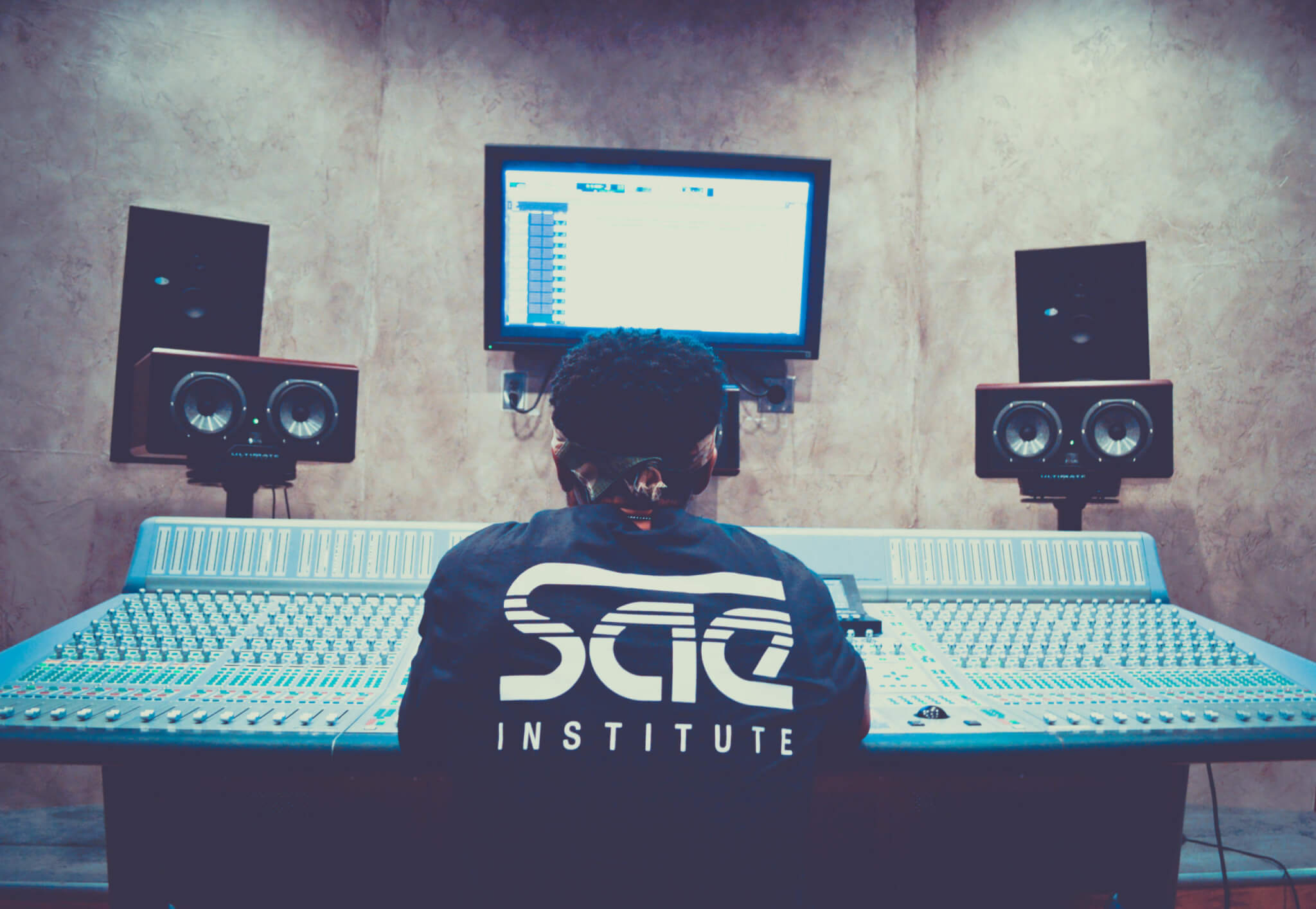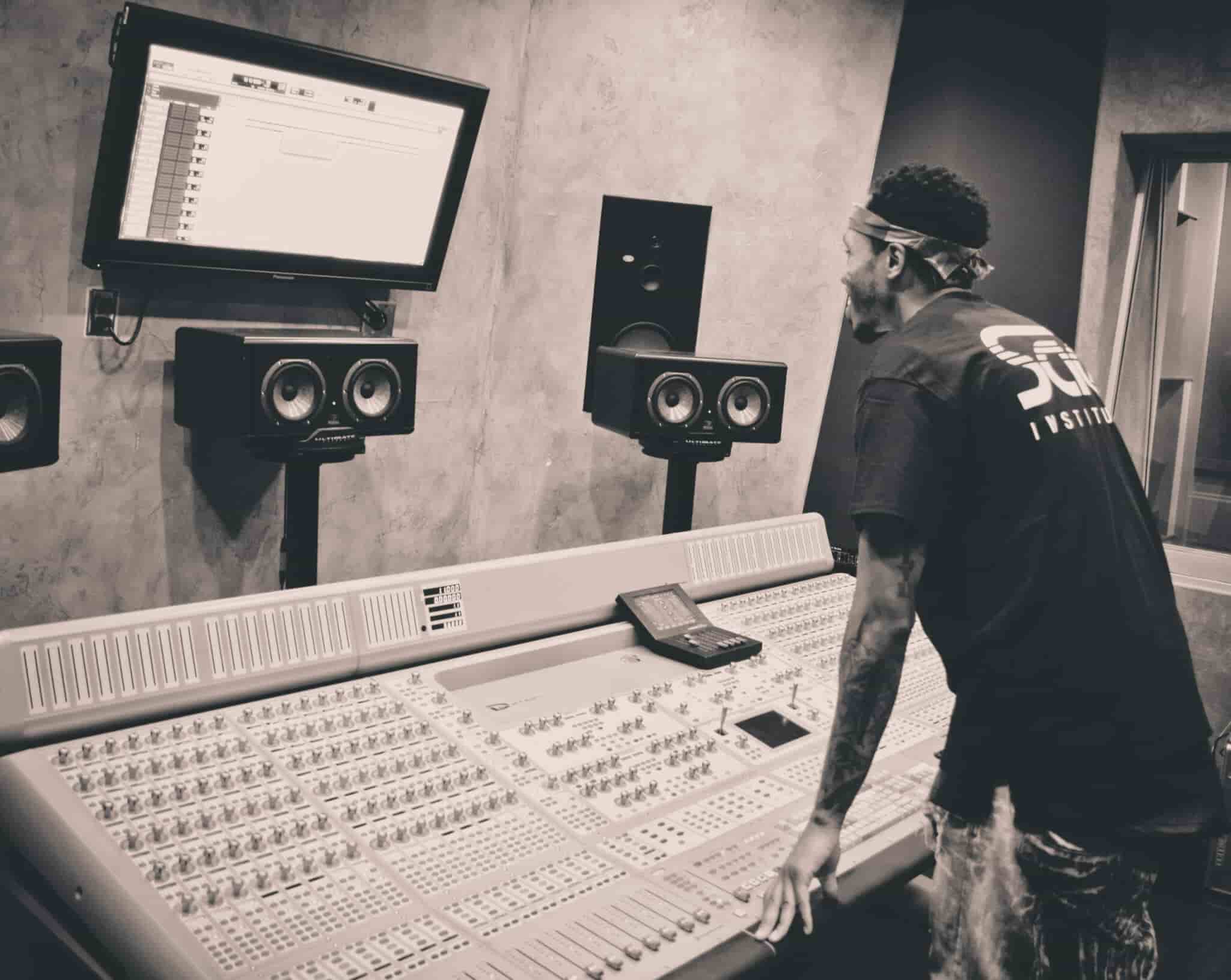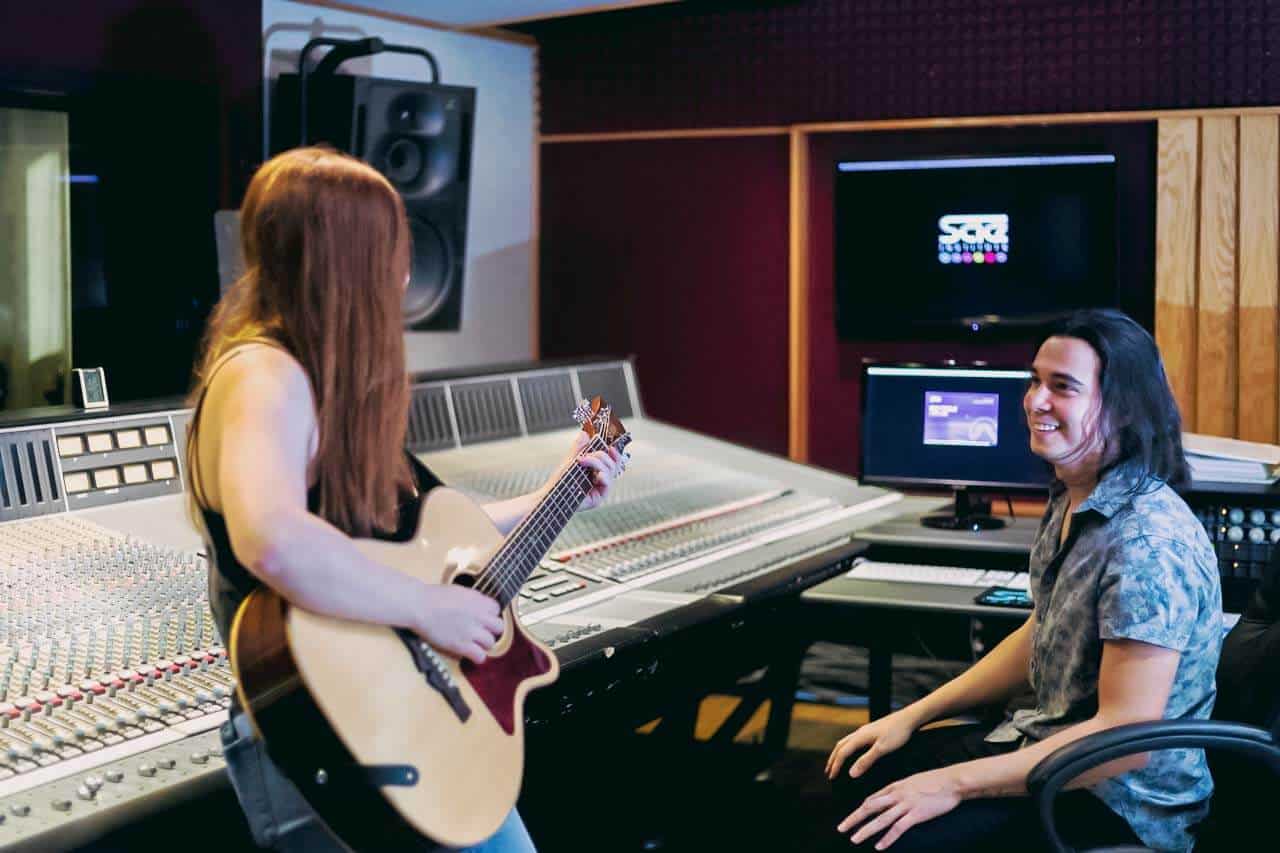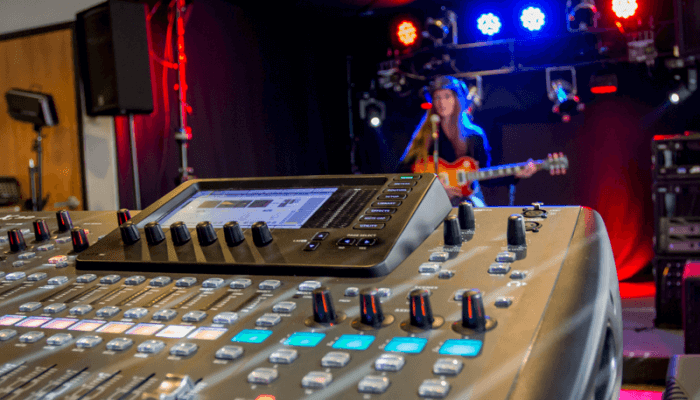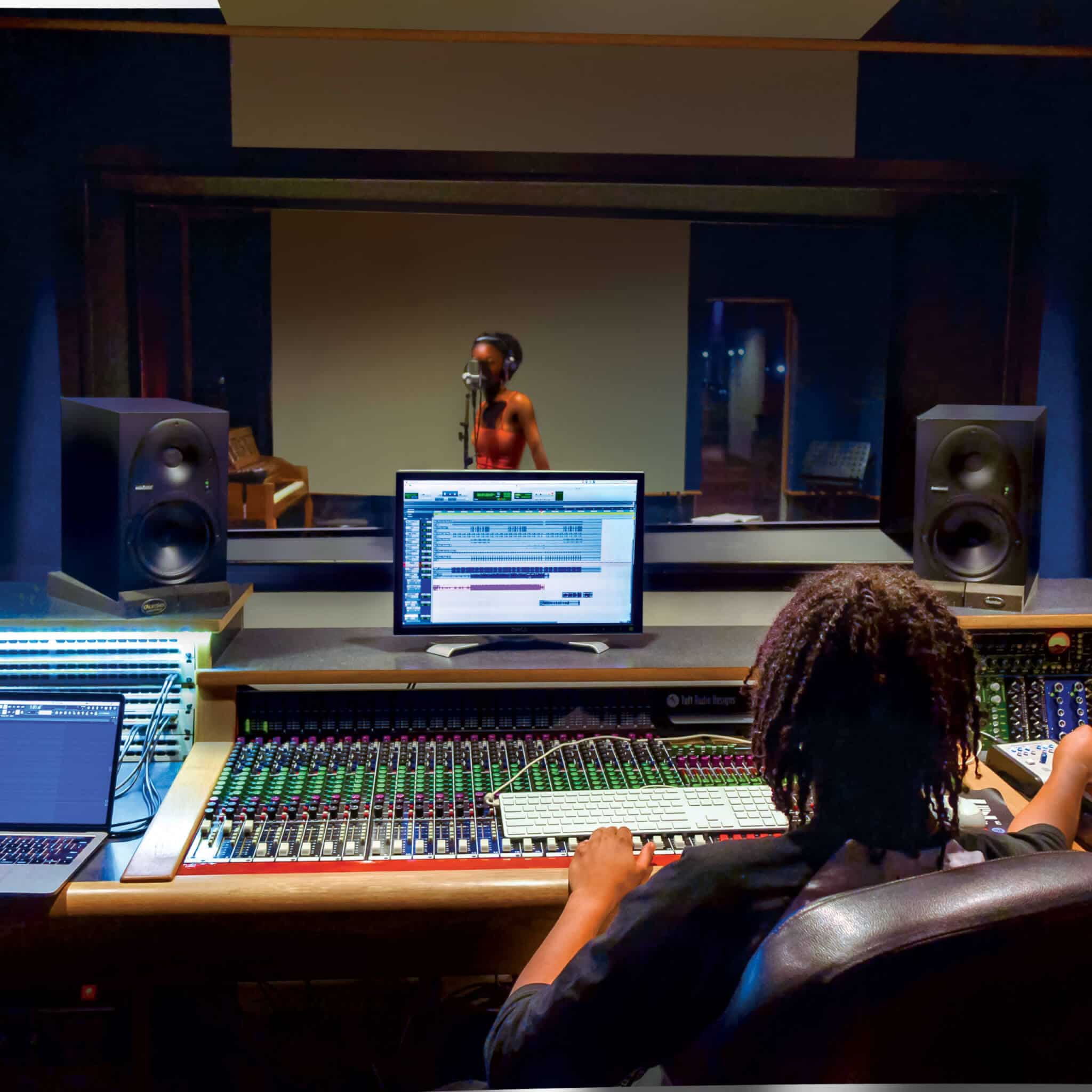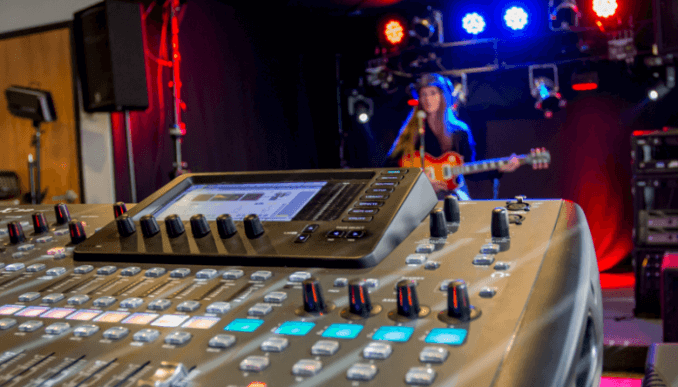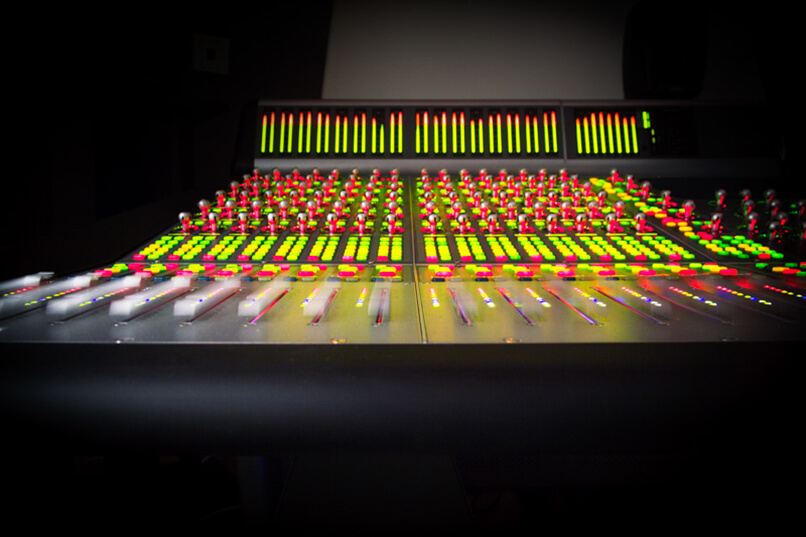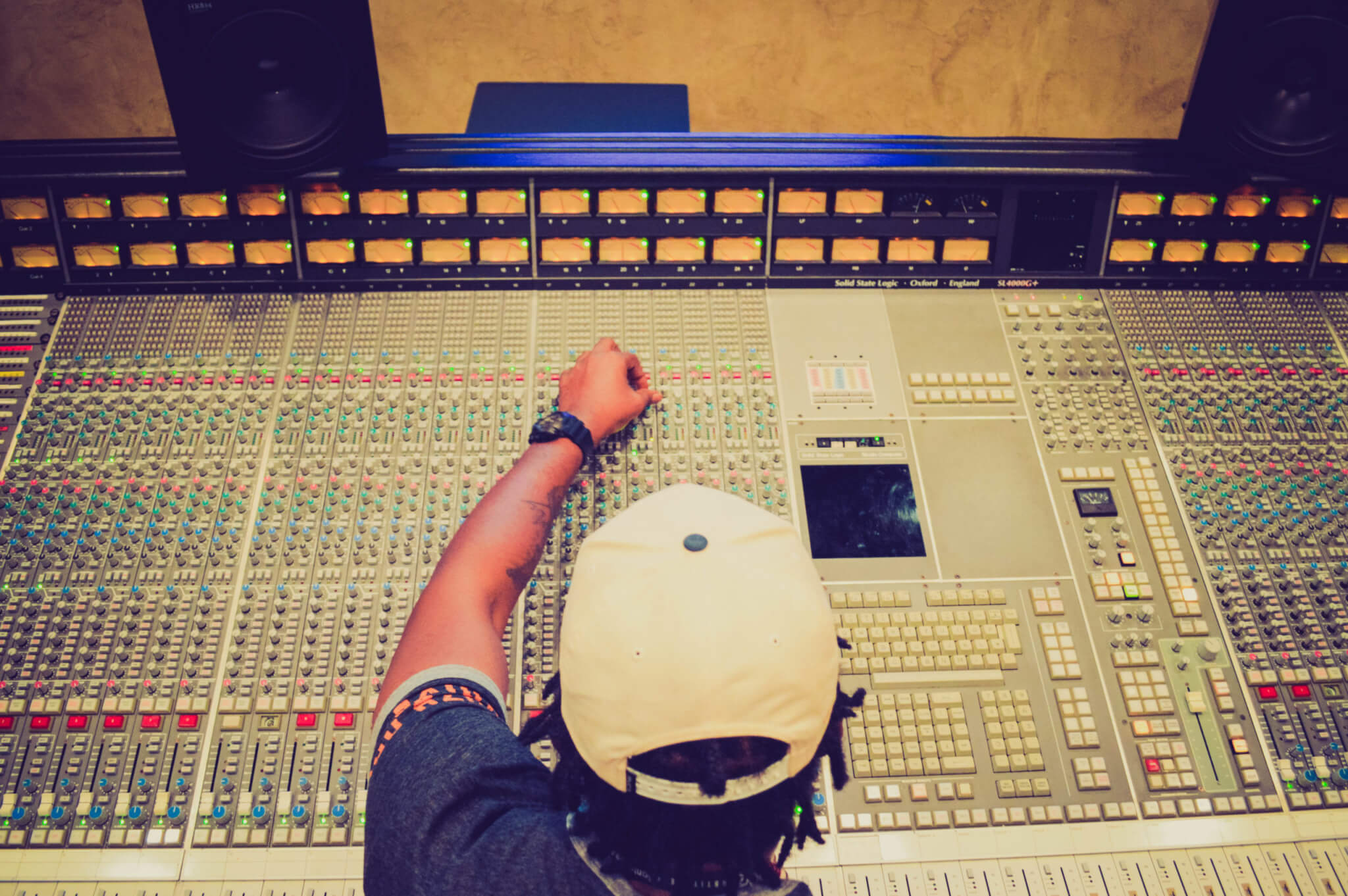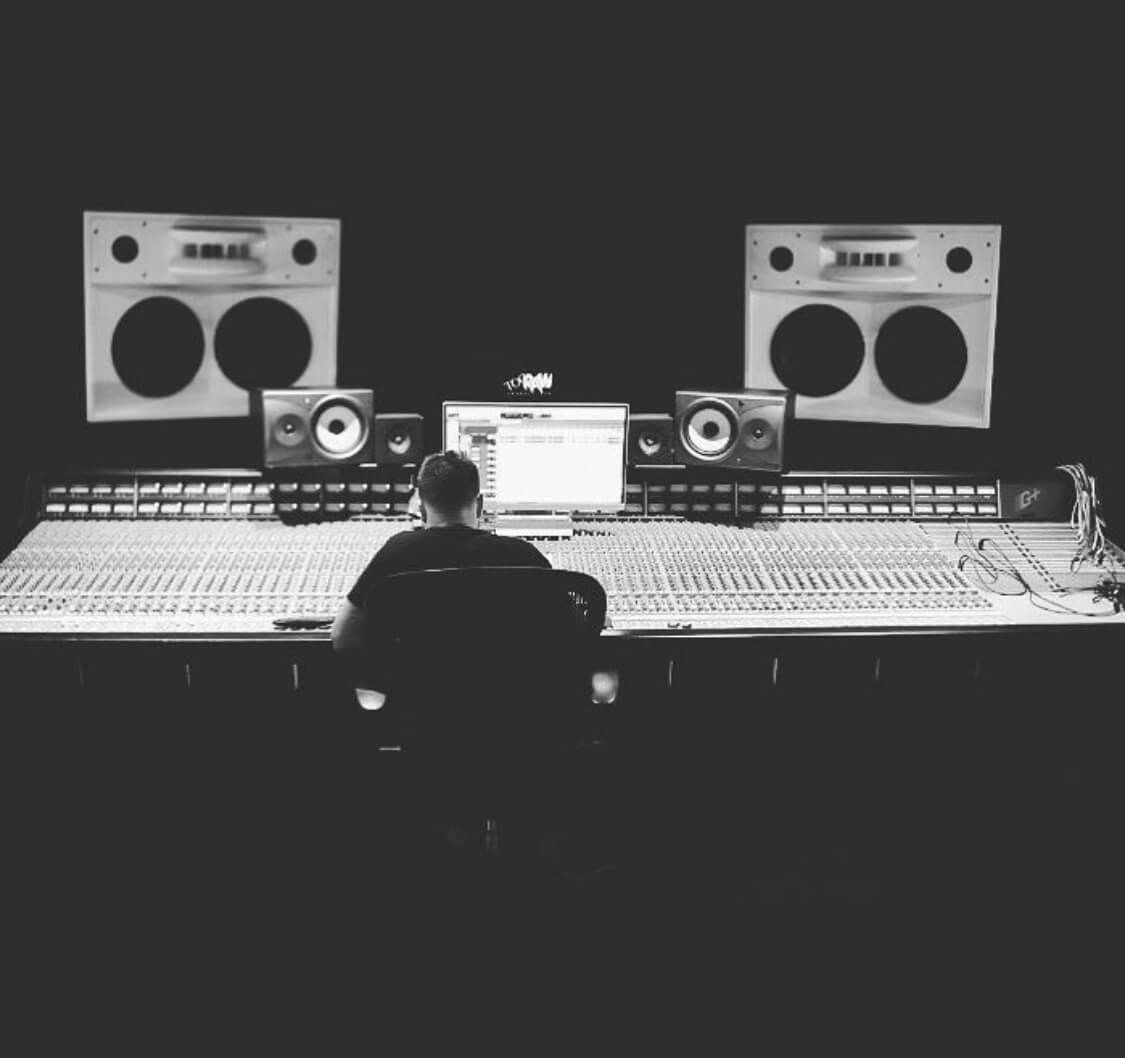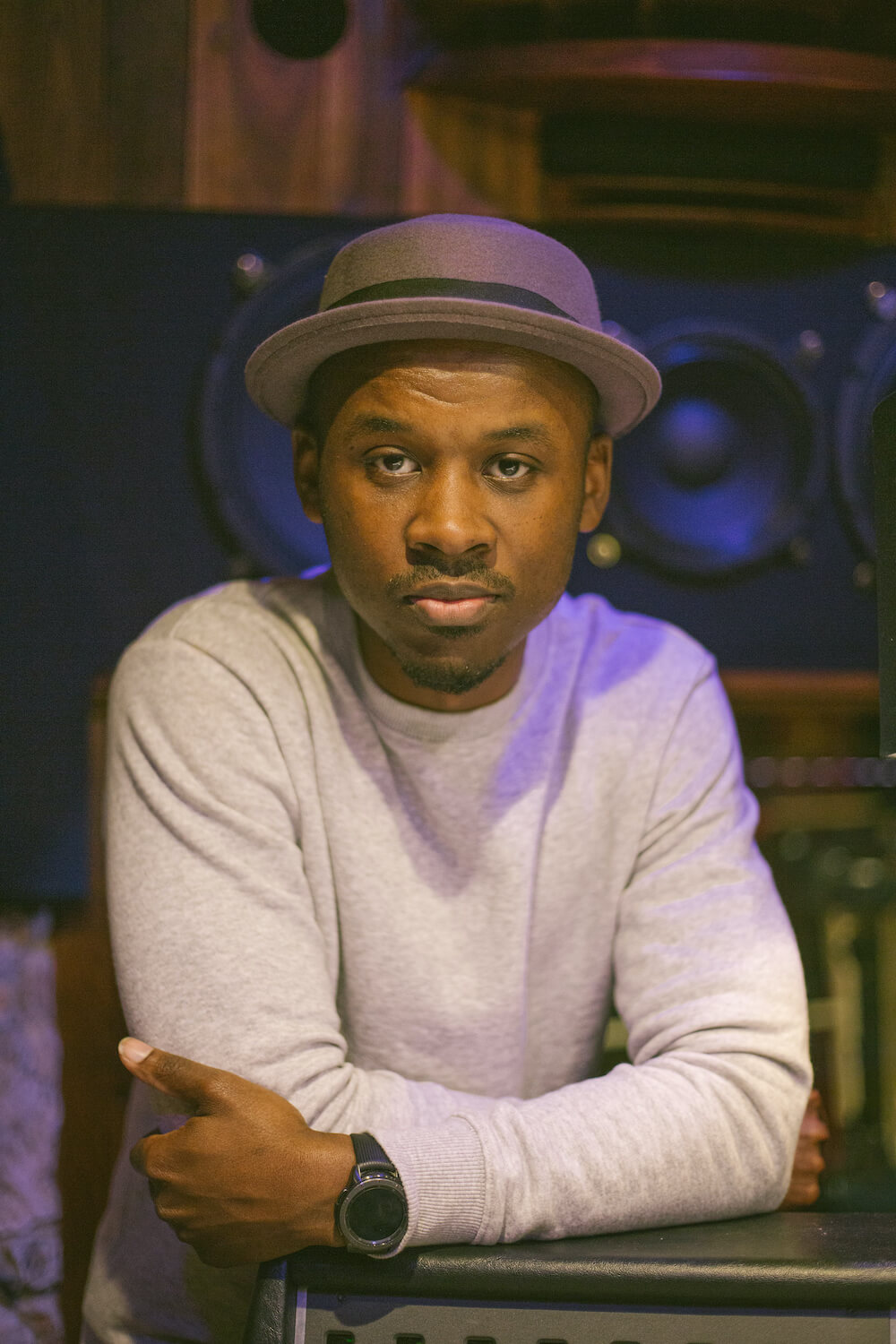Audio Technology Diploma
Get ready to shake up the Audio industry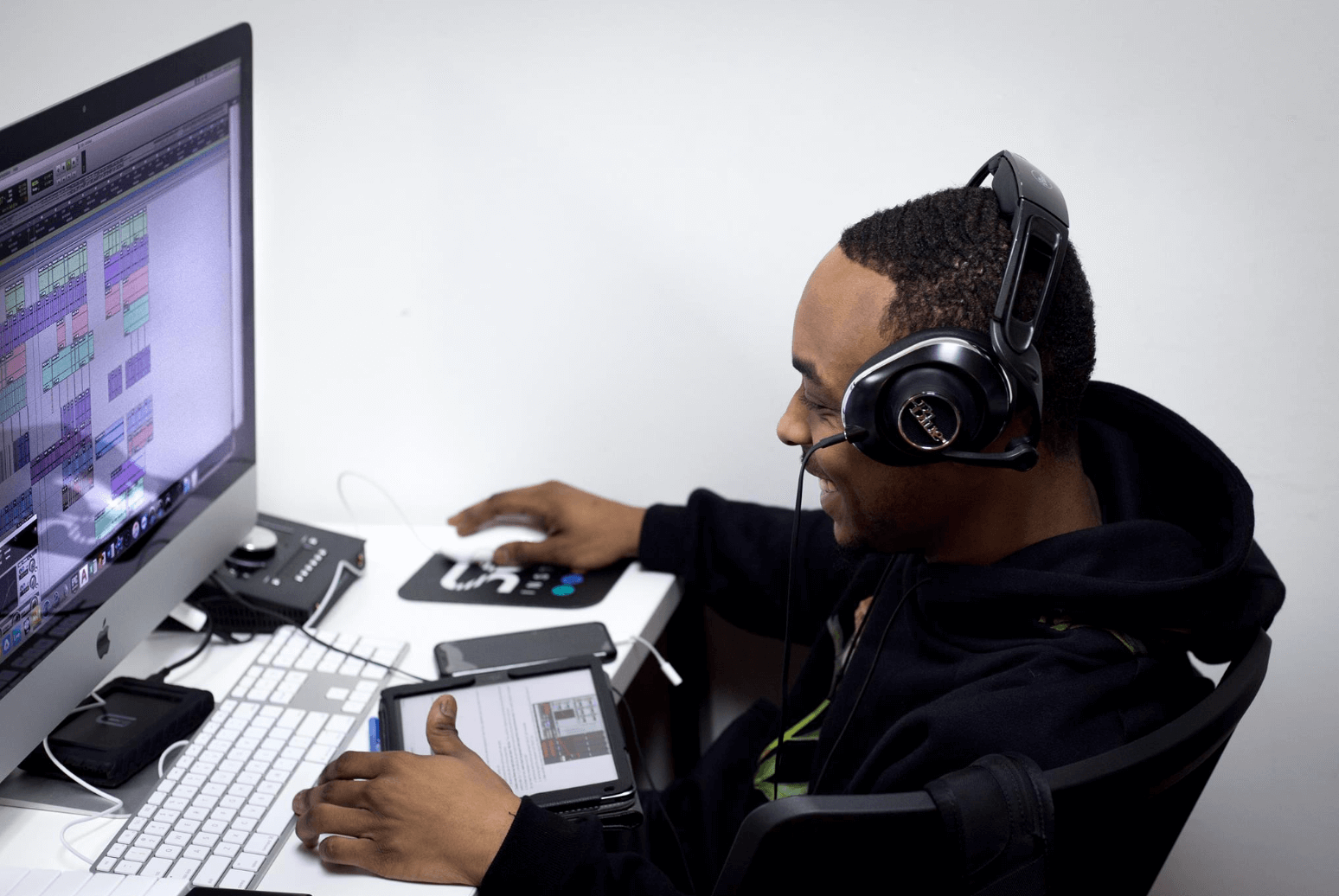
New York Campus – $23,072.00
Please refer to the current catalog for official information and details regarding tuition and fees.
$23,799.00
New York Campus – $23,072.00
Please refer to the current catalog for official information and details regarding tuition and fees.
$23,799.00
September 3rd
December 2nd, 2024
August 19th, 2024
November 18th, 2024
September 3rd
December 2nd, 2024
August 19th, 2024
November 18th, 2024
Our Audio Technology Diploma program is a non-degree program that focuses on both the technical and creative components of audio recording as well as the essential business principles of the entertainment industry.
GET READY FOR A CAREER IN AUDIO NOW
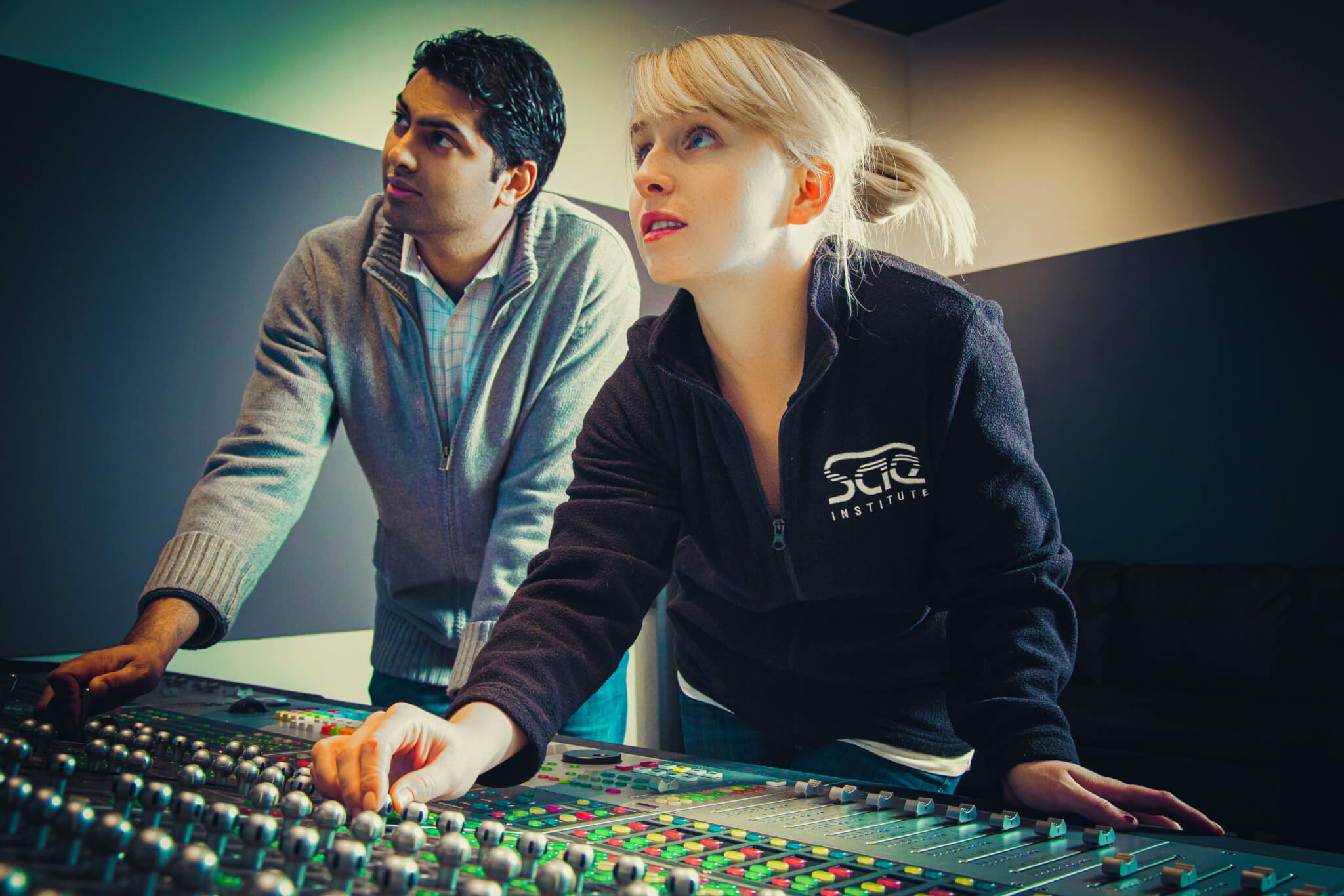
THIS AUDIO COURSE COVERS:
Course Structure
The Audio Technology program is typically 48 weeks in length, comprised of four twelve-week moduleswith a one-week break between modules. Each module is a course comprised of two required components: Theory and Practical. The total program length is 900 clock hours.
Prerequisite: None
This course introduces the student to the recording process, audio terminology, the fundamental nature of sound, the human ear and hearing process, as well as the basic principles of electronics and music theory as they apply to audio engineering and procedures. This course also includes an introduction to basic audio equipment and operating procedures, tape machines and editing, signal flow, computer fundamentals, and MIDI sequencing.
Classes cover intensive theory and practice of recording consoles, including techniques for mixing, using equalizers and signal processors, as well as microphone theory and techniques.
Prerequisite: AT101
This course emphasizes the role of the computer in audio engineering, including advanced instruction in digital audio workstations, sequencing, MIDI theory, and the operation of analog vs. digital consoles. An introduction to intermediate signal flow will be covered on both analog and digital consoles, and students will begin to work collectively in the recording studio environment. Session procedures will be emphasized and common documentation practices reviewed. An introduction to Pro Tools will also be implemented as intermediate signal flow concepts within the DAW environment are explored.
Prerequisite: AT102
This course covers the theory and practice of planning, setting up, and operating a recording session, including session planning, synchronization of equipment, audio console operation, and advanced signal flow in music and postproduction environments. Advanced Pro Tools applications and integrated consoles and control surfaces for multiple digital multi-track platforms are explored.
Prerequisite: AT103
This course starts with a focus on recording, editing, and mixing sound for picture. It also exposes the student to multi-channel engineering and audio procedures for radio and TV production. A music production lab hones the student’s skills. This course includes a Sound Reinforcement Lab to give the student actual experience in producing a live event. Course work explores the role of audio industry professionals, record companies, advertising and marketing, studio personnel, service contracts, principles of copyright, and client expectations. Engineering concepts as they relate to multimedia and the emerging video game/interactive entertainment industry are also explored.
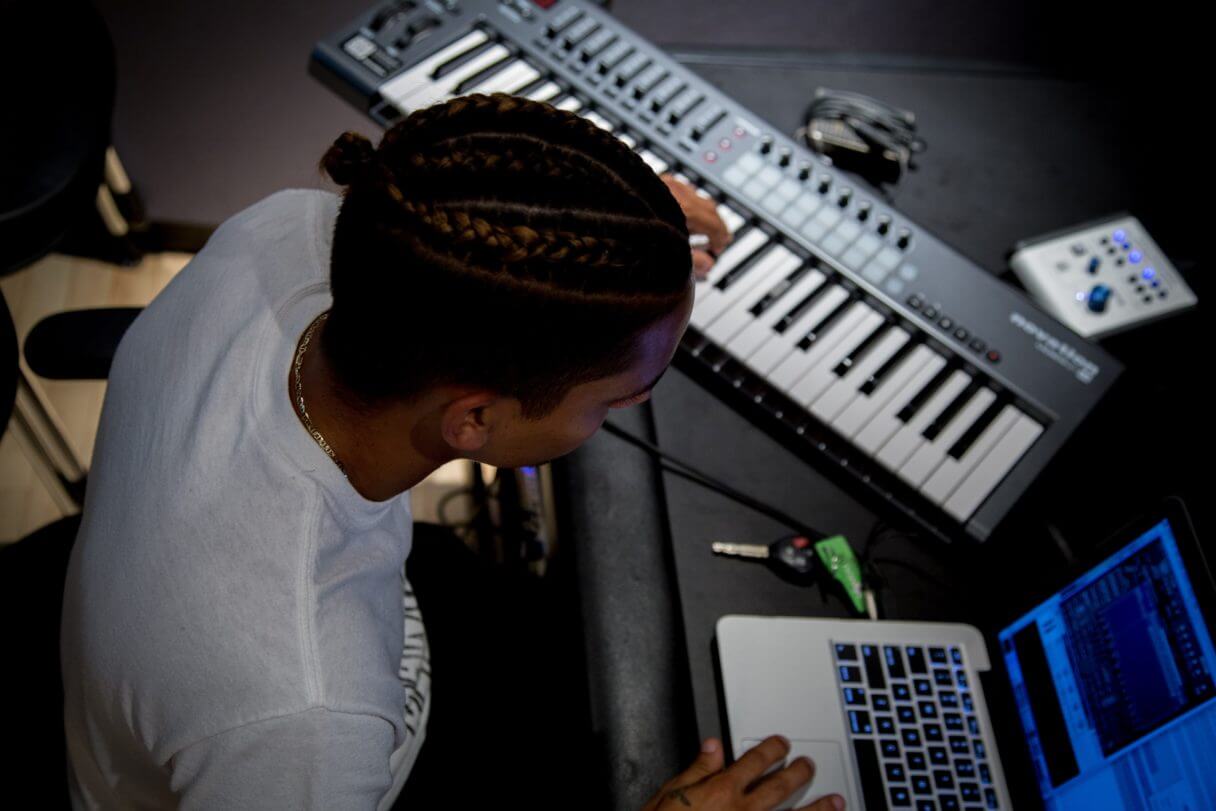
Career Outcomes
- Boom Operator
- Sound Assistant
- Assistant Audio Engineer
- Production Assistant
- Sound Cutter
- And more...
Alumni Spotlight
Course FAQs
You can have your email password reset by emailing the request through to servicedesk@navitas.com.
Students who are well organized find part-time work manageable.
Yes! We consult with industry on a regular basis and update our resources as required.
You may elect to pay tuition fees using one of the following methods:
Check or Money Order
Amex, Discover, Mastercard or Visa
Electronic Bank Transfer
